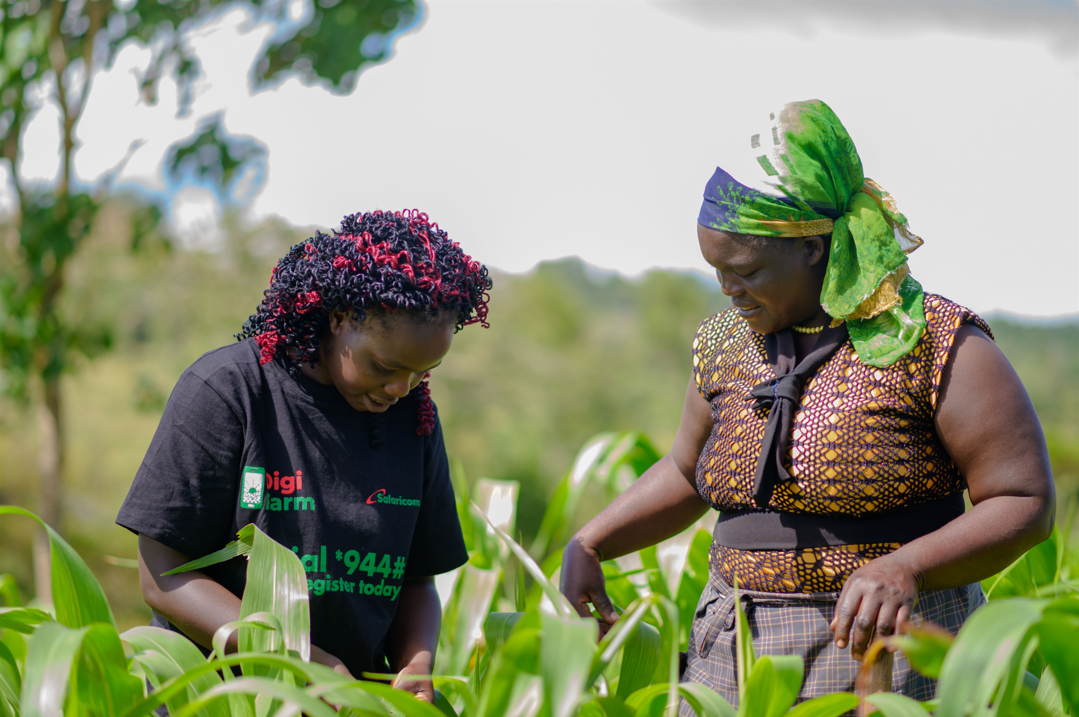Africa Instore Solutions (AIS) embarked on a transformative journey in partnership with
DigiFarm Kenya Ltd, a subsidiary of Safaricom PLC, from 2019 to 2022. The Collaborative
effort aimed to implement a groundbreaking agro-based project in nine Kenyan counties,
including arid and semi-arid regions like Embu, Nyeri, Meru, Tharaka Nithi, Kitui, Kajiado,
Kericho, and Bomet.
This project sought to revolutionize smallholder farming by providing comprehensive support
and bridging the gaps in inputs, information, finance, and market access.
Empowering Smallholder Farmers
In collaboration with DigiFarm Kenya Ltd, AIS was pivotal in empowering over 30,000
smallholder farmers across the nine target counties. The impact was substantial, focusing on
providing essential resources and fostering inclusive agricultural growth. Here are the key
achievements:
Access to Resources: The project facilitated access to crucial agricultural resources, including
high-quality inputs, vital information, financial assistance, and market linkages. Smallholder
farmers, who often faced challenges acquiring these resources, were now equipped to enhance
their productivity and resilience.
Through strategic partnerships and supply chain enhancements, the project ensured that farmers
gained access to high-quality agricultural inputs. This encompassed seeds, fertilizers, pesticides,
and cutting-edge farming technologies. The availability of these inputs empowered farmers to
adopt modern, sustainable farming techniques, significantly boosting their crop yields.
Supporting Micro and Small Enterprises (MSEs): Over 300 Micro and Small Enterprises
(MSEs) received support through this initiative. Notably, 60% of these MSEs were agro-
suppliers, strengthening the local agribusiness ecosystem. This support further bolstered the
supply chain, creating a win-win situation for farmers and entrepreneurs.
The role of agripreneurs
At the core of this transformation were village-based agripreneurs, an essential component of
the project’s success. These local champions played multifaceted roles that transcended
traditional agricultural practices. Their primary functions included:
- Mobilization of farmers: Agripreneurs mobilized and organized farmers, fostering a sense of
community and collective action. This approach encouraged cooperation and knowledge sharing
among farming communities. - Geotagging: Through geotagging, agripreneurs ensured that farm locations were accurately
recorded. This data was invaluable for precision agriculture and optimizing resource distribution. - Input distribution: Village-based advisors played a pivotal role in the distribution of
agricultural inputs. They ensured farmers had access to quality seeds, fertilizers, and other
essential resources. - Aggregation support: Agripreneurs facilitated the aggregation of farm produce from their
respective customer bases. This approach streamlined the supply chain, enabling efficient market
access for smallholder farmers. - Payment facilitation: Village-based advisors also played a crucial role in facilitating payments,
ensuring farmers received fair compensation for their produce.
Digifarm operation model
The success of this ambitious project was made possible through a well-structured operation
model:
- AIS Staff: A dedicated team from AIS worked tirelessly to support field operations across all
nine counties. Their expertise and commitment were instrumental in project implementation. - Coordinators: Coordinators provided a supervisory role for each county, overseeing project
activities and working closely with Village Advisors to ensure seamless execution. - Village-Based Advisors: These grassroots heroes formed the backbone of the project. They
were the direct link to farmers, bridging the gap between resources and rural communities. Their
Dedication and hard work were the driving forces behind this transformative initiative. - Master Agents: These individuals supported various aspects of the project, from input
distribution to crop insurance and ensuring the safe use of chemicals. Their contributions were
vital to the success of farmer organizations.
In conclusion, the Smallholder end-to-end Support project, a collaboration between AIS and
DigiFarm Kenya Ltd has left an indelible mark on Kenyan agriculture. By empowering
smallholder farmers, nurturing MSEs, and leveraging the dedication of agripreneurs, the project
has significantly improved the lives of countless individuals while contributing to agricultural
growth and resilience in the target counties. This initiative serves as a testament to the potential
for transformative change when innovation, collaboration, and community engagement come
together in agriculture.

